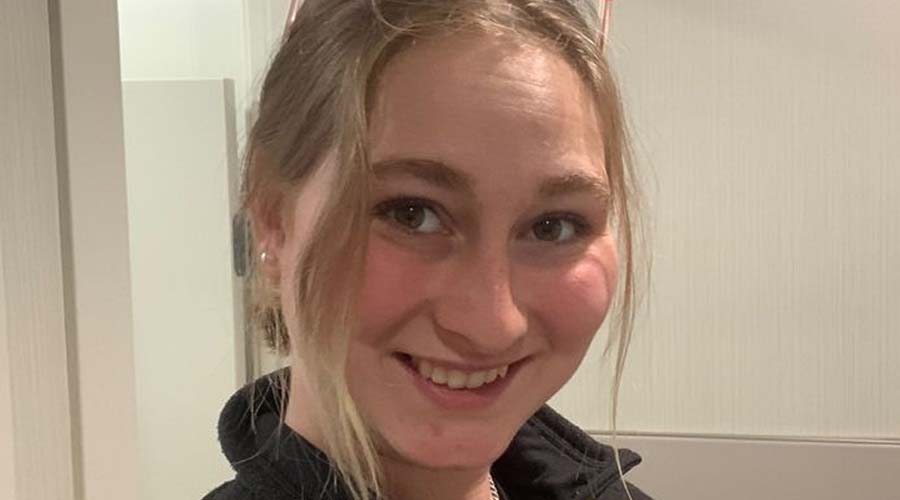When I started working as a welder, I knew I’d be one of the only women on the team. That didn’t scare me. I actually liked the challenge. What I didn’t expect was how much of the pushback would come wrapped in a smile.
“Don’t wanna mess up that face, sweetheart.”
“You sure you can lift that?”
“I’d be distracted if you were on my crew.”
It was nonstop. But I kept my head down, earned my certifications, and showed up earlier than most of the guys. I wasn’t trying to prove anything—I just liked the work. The precision, the heat, the way everything came together when you did it right.
Still, no matter how solid my welds were, people kept assuming I was just visiting the job site. One guy even asked if I was someone’s girlfriend. I laughed it off until I realized he was dead serious.
The turning point came on a job in Mesa. We were short-staffed, and the foreman—Dale, a chain-smoking guy who never learned my name—had to assign me a big solo piece. Structural. Visible. No one could “fix it” after. I could feel the weight of everyone watching me like they were just waiting for me to screw up.
I didn’t. The weld was clean, smooth, tight.
That should’ve shut everyone up. Instead, the next day I walked into the trailer and found a picture taped to my locker. A Barbie doll holding a little welding torch, with “This you?” scribbled underneath.
I didn’t say anything. I just left it there.
Later that week, someone caught me in the parking lot and told me something I wasn’t supposed to know—about who taped it up, and why.
It was Ian. Quiet guy. Keeps to himself mostly. I didn’t even realize he noticed me, to be honest. But apparently, he had a thing for one of the guys—Marco—and when I got assigned that solo piece, Marco started complimenting my work. Not flirty, just respectful. Professional.
Ian didn’t like that.
So, he pulled that Barbie stunt, thinking it’d knock me down a peg. Maybe even get Marco’s attention back. The irony? I wasn’t even looking for attention. I just wanted to work.
Anyway, hearing that kinda stung. Not because of the joke—but because it confirmed what I already felt: some folks would rather tear you down than admit you’re good at something.
I sat on it for a few days. Thought about saying something. HR? Eh. That’s a coin toss. Confront Ian? Could backfire. But the one thing I knew? I wasn’t gonna quit. That’s what people like him count on.
So instead, I did something else.
The next week, I brought in a pink Barbie lunchbox. Same model as the photo. I left it out on the bench while I geared up. Didn’t say a word about it. I could feel the whispers, the side-eyes. But after a while, even that got boring for them.
And then something strange happened. One of the newer guys—Luis—came up to me during break.
“I saw your weld on Beam 42,” he said. “Thing looked like it came out of a textbook.”
I nodded, trying not to smile too hard.
“Also,” he added, “my niece would love that lunchbox. Where’d you get it?”
We both laughed.
From there, the tone started to shift. Slowly. Not everyone changed, of course. But more folks started talking to me like I was just a welder. Not a novelty. Not a Barbie. Just a teammate.
A few weeks later, Dale (the chain-smoking foreman) actually called me by my name. “Kendra, can you double-check the pressure line on 12C?” I almost looked around to see if he was talking to someone else.
But the real twist? Ian came up to me one morning before shift. Looked nervous, like he rehearsed what he was about to say.
“Hey,” he started, “I was kind of a jerk. That photo thing… it was stupid. I was out of line.”
I didn’t say anything at first. Just looked him in the eye. Let it hang.
Finally, I said, “Yeah. It was. But I appreciate the apology.”
He nodded, shoved his hands in his pockets, and walked off. We’ve never been friends, but he kept it respectful after that.
I don’t know if it was the Barbie lunchbox, the clean welds, or just time—but things changed. I kept getting assigned tougher jobs. I even got asked to train one of the apprentices.
And last week, I opened my locker and found a little toy welder figure. Not Barbie. Just a tiny woman in overalls and a helmet, holding a torch.
No note. No insult.
Just that.
I took it home and set it on my windowsill.
Here’s the thing: People will always find a reason to doubt you—your looks, your gender, your background. But if you show up, do the work, and stay true to who you are, those doubts stop being your problem. They become theirs.
Let people talk. Let them laugh. Then let your work speak louder.
Thanks for reading—if this hit home for you, give it a like or share it with someone who might need to hear it today.


